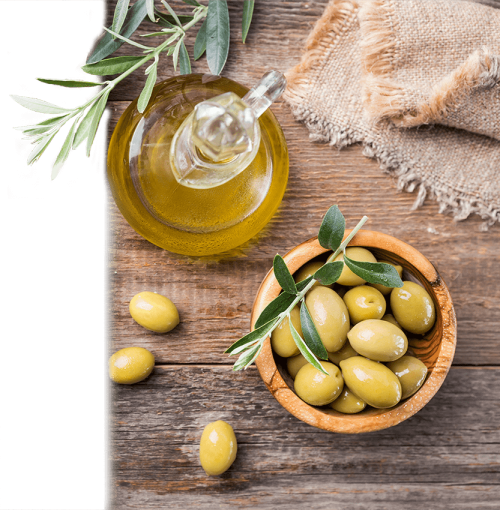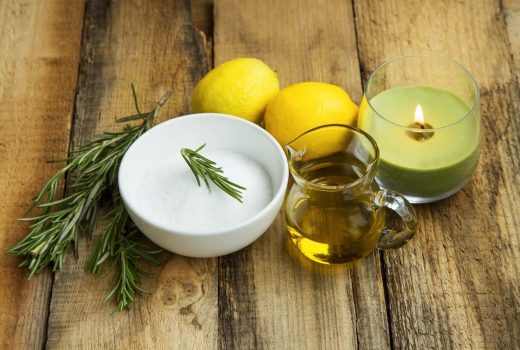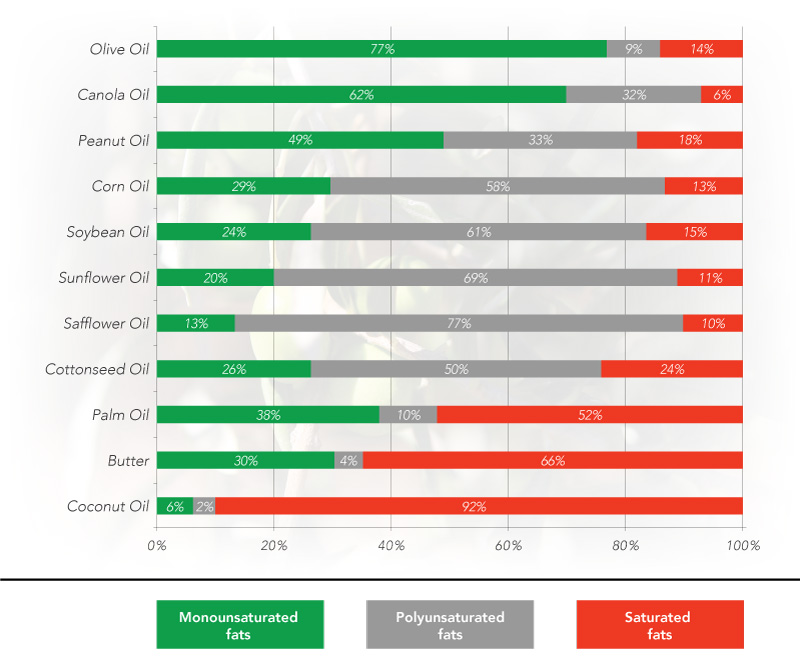Benifits of olive oil
Serjella
The Finest Olive Oil
When you hear the name of Serjella you remember the quality, the taste and texture. Our olive oil is exceptional; it is distinguished and known by its highest quality, as it was made from the finest types of olives whose trees are cultivated in Syria, which is famous for its picturesque nature, temperate climate, fertile soil and its production of the finest olives in the world. Serjella olive oil is known by its unique flavor, which is ideal for enhancing different flavors of food.
Benefits of Syrian Olive Oil
Serjella’s olive oil offers a guide towards a more healthy lifestyle with many benefits to offer:

Improve the health of skin, hair and nails
One of the most important health benefits of olive oil is that it acts as a moisturizer. When ingesting a teaspoon of it on an empty stomach as it improves the health of the skin and moisturizes it, also it works to nourish the hair and increases its density, and also contributes to nourishing both nails and bones.
Strengthening the immune system
Olive oil contributes in strengthening immunity and addressing various viruses and diseases, containing antioxidants important to fight different infections and containing fatty acids that help prevent exposure to certain immune crises, including increase in white blood cells.
Contribute to weight loss
Olive oil contributes significantly to the process of losing weight, by eating olive oil on an empty stomach, which in turn helps increase your feeling of satiety for a longer period, thus reducing the amount of food you eat later, which leads to eating fewer calories.
Improve the health of skin, hair and nails
One of the most important health benefits of olive oil is that it acts as a moisturizer. When injesting a teaspoon of it on an empty stomach as it improves the health of the skin and moisturizes it, also it works to nourish the hair and increases its density, and also contributes to nourishing both nails and bones.
Strengthening the immune system
Olive oil contributes in strengthening immunity and addressing various viruses and diseases, containing antioxidants important to fight different infections and containing fatty acids that help prevent exposure to certain immune crises, including increase in white blood cells.
Contribute to weight loss
Olive oil contributes significantly to the process of losing weight, by eating olive oil on an empty stomach, which in turn helps increase your feeling of satiety for a longer period, thus reducing the amount of food you eat later, which leads to eating fewer calories.
Cleaning the liver from toxins
Olive oil works to break up gallstones and rid the body of toxins so that the body performs its role to the fullest.
Promoting colon health
The nutritional values found that olive oil play an important role in maintaining colon health and its mechanism of action, as it contributes to protecting colon cells from damage and thereby reducing the risk of colon cancer.
Protecting the heart from various diseases
Olive oil significantly reduces the risk of heart disease by 15%, according to numerous scientific research.

Cleaning the liver from toxins
Olive oil works to break up gallstones and rid the body of toxins so that the body performs its role to the fullest.
Promoting colon health
The nutritional values found that olive oil play an important role in maintaining colon health and its mechanism of action, as it contributes to protecting colon cells from damage and thereby reducing the risk of colon cancer.
Protecting the heart from various diseases
Olive oil significantly reduces the risk of heart disease by 15%, according to numerous scientific research.

Lowering cholesterol
Olive oil lowers bad cholesterol and raises beneficial cholesterol for the body, helping to protect the heart and arteries from clots and chronic diseases as well as improving insulin levels, lowering blood sugar and also increasing insulin production in the blood.
Cholesterol is known as "harmful" cholesterol because it transmits and deposits in tissues and arteries, damaging the walls of blood vessels. High-density lipoprotein cholesterol is also known as a "good" type because it removes harmful cholesterol from cells and transports it to the liver to be eliminated.
Lowering cholesterol
Olive oil lowers bad cholesterol and raises beneficial cholesterol for the body, helping to protect the heart and arteries from clots and chronic diseases as well as improving insulin levels, lowering blood sugar and also increasing insulin production in the blood.
Cholesterol is known as "harmful" cholesterol because it transmits and deposits in tissues and arteries, damaging the walls of blood vessels. High-density lipoprotein cholesterol is also known as a "good" type because it removes harmful cholesterol from cells and transports it to the liver to be eliminated.
Fats and Cholesterol
Fats are considered essential nutrients but not all fats are similar. With more than 75% monounsaturated fat, olive oil is considered the healthiest dietary fat. Two types of cholesterol are known as low-density fatty proteins (LDL) and high-density fatty proteins (HDL). Cholesterol is known as “harmful” cholesterol because it transmits and deposits in tissues and arteries, damaging the walls of blood vessels. High-density lipoprotein cholesterol is also known as a “good” type because it removes harmful cholesterol from cells and transports it to the liver to be eliminated.
Different Types of Fats
Monounsaturated fats:
It regulates cholesterol levels by lowering “harmful” cholesterol (LDL) and increasing “good” cholesterol (HDL). It is liquid at room temperature and reduces the risk of cardiovascular disease.
Unsaturated Fats:
Lowers cholesterol levels, “good” and “harmful.” It is also liquid at room temperature but is more prone to cell aging and less stable in cooking than monounsaturated fats.
Saturated Fats:
Increases the level of “harmful” cholesterol and causes coronary artery disease. They are solid or semi-solid at room temperature.
Unsaturated fats:
It is a type of unsaturated fat resulting from an industrial process consisting of adding hydrogen oils to make them stiffer, increasing the lifespan of the product, and reducing cooling requirements. They are solid at low temperatures and increase the risk of coronary artery disease. Medical studies also suggest that consuming trans fats may increase the risk of cancer.


